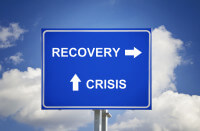 Dr. Tom Frieden the Director of the CDC recently commented that the SARS epidemic cost the world’s economy over “40 billion dollars” as a result of the unnecessary restrictions on travel and trade during the crisis: a monumental impact for a disease that was concentrated in relatively few places and was largely resolved quickly. There is an obvious lesson. No business is safe from the ravages of the public’s perception of a disease. The pivot from an understanding intelligent public response to all-out panic can be instantaneous! How many people need to get the disease in Texas to transform scary news into a frightening, seemingly overwhelming threat.
Dr. Tom Frieden the Director of the CDC recently commented that the SARS epidemic cost the world’s economy over “40 billion dollars” as a result of the unnecessary restrictions on travel and trade during the crisis: a monumental impact for a disease that was concentrated in relatively few places and was largely resolved quickly. There is an obvious lesson. No business is safe from the ravages of the public’s perception of a disease. The pivot from an understanding intelligent public response to all-out panic can be instantaneous! How many people need to get the disease in Texas to transform scary news into a frightening, seemingly overwhelming threat.
No business can afford to wait assuming “…this too shall pass.” Immediate action is required to ascertain the exposure to your business if people begin to react emotionally to the Ebola threat.
You should:
[list style=”customlist”]
- 1. Determine whether your current disaster recovery plan includes people-related events like disease.
- 2. Identify your key personal. Key sites. Determine what your risks are if a broader Ebola becomes or is perceived to be real. What will you do to protect these critical people or make sure they are available if required to run your business?
- 3. Ask your vendors where you fit into their support scenarios. If they had to choose whom to support, would they pick you and your business?
- 4. Determine which customers, etc. you want to support in such an event.
- 5. If you operate outside of State borders, are there conflicts between the States’ laws that might prevent you from sustaining your activities.
[/list]
The list obviously goes on. For example, the last thing rental car companies feared during the SARS epidemic was people all over the world declining to rent cars because they were afraid to travel. But it happened. Could your business sustain itself during a pandemic Ebola event. Are you sure?






